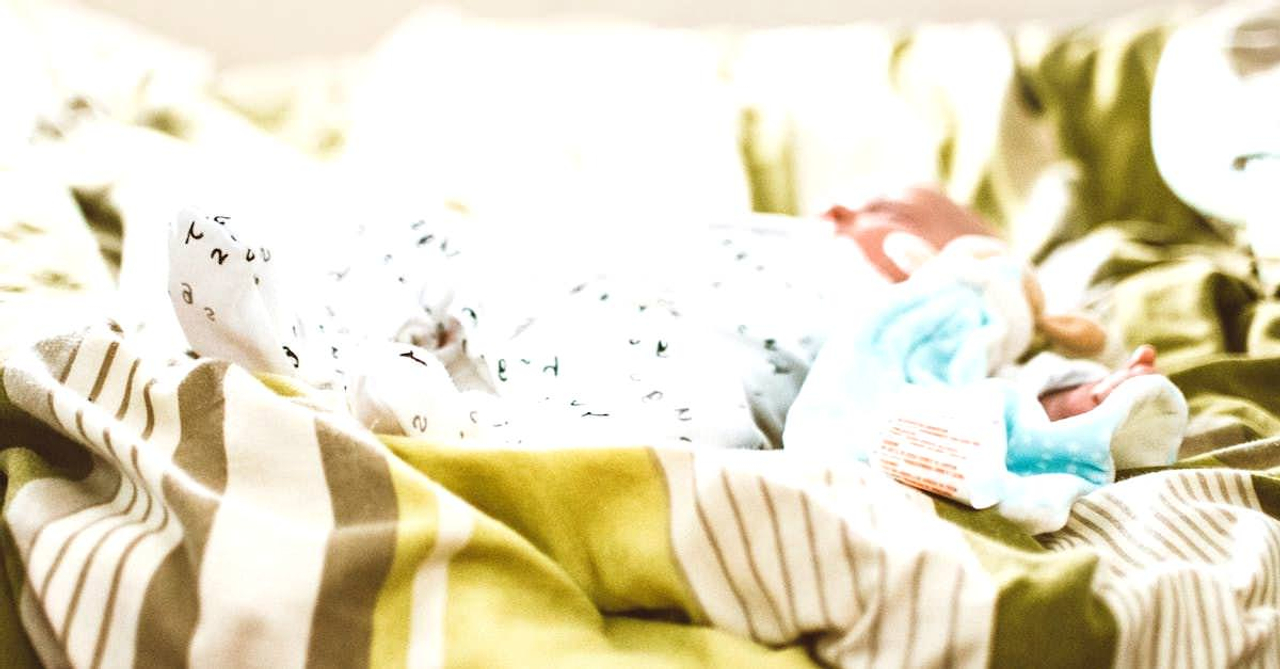Sleep is one of the most important factors in our overall health and well-being, but far too many of us struggle to get enough of it. There are many things you can do to improve your sleep quality, whether you have insomnia, stress, or simply can't seem to turn off your brain. In this article, we'll go over 10 sleep-improvement tips that you can start using right away. From developing a relaxing bedtime routine to altering your sleeping environment, these suggestions are intended to help you get the rest you require to feel your best. So, if you're tired of tossing and turning all night, keep reading to find out how to improve your sleep and overall health and well-being.
Create a Relaxing Bedtime Routine

Creating a relaxing bedtime routine can help you improve the quality and quantity of your sleep. Here are some suggestions for developing an effective bedtime routine that works for you:
1. Set a consistent bedtime
Getting up and going to bed at the same time every day can help your body's natural sleep-wake cycle, making it easier to fall asleep at night and wake up feeling refreshed in the morning. Maintain a consistent routine by sticking to the same schedule even on weekends.
2. Disconnect from technology
Blue light from electronic devices has been shown to suppress the production of melatonin, the hormone that regulates sleep. To help you relax and fall asleep, avoid using electronic devices such as smartphones, laptops, and tablets at least an hour before bedtime.
3. Have a relaxing bedtime ritual
Include relaxing activities in your pre-sleep routine to help you unwind and signal to your body that it's time to sleep. Taking a warm bath, listening to soothing music, practicing yoga or meditation, or reading a book are all examples.
4. Create a sleep-conducive environment
Ascertain that your bedroom is cool, dark, and quiet. A more comfortable sleeping environment can also be achieved by using blackout curtains, earplugs, and a comfortable mattress and pillows.
You can improve the quality and duration of your sleep by incorporating these tips into your bedtime routine, leading to a more refreshed and productive day ahead.
Avoid Caffeine and Alcohol Before Bed

If you're having difficulty sleeping, your daily habits could be to blame. Caffeine and alcohol consumption can seriously disrupt your sleep patterns. Caffeine, a stimulant found in coffee, tea, cola, and chocolate, can keep you awake and alert for hours, even when consumed late in the day. Alcohol, on the other hand, may initially make you feel drowsy but can lead to fragmented sleep, including early morning awakenings, nightmares, and night sweats.
Caffeine and alcohol have long-lasting effects on sleep, and even if you do fall asleep, the quality of your sleep is likely to suffer. Consuming these substances before going to bed can make you tired and groggy the next day. To improve your sleep quality, avoid caffeine and alcohol for at least four hours before going to bed. Instead, drink caffeine-free herbal teas or warm milk to unwind and relax.
Make Your Sleep Environment More Comfortable
Your sleeping environment has a significant impact on your ability to fall and stay asleep. That is why it is critical to make your sleeping environment as comfortable as possible. Here are some tips:
Invest in a Good Quality Mattress
The most important component of your sleeping environment is your mattress. Invest in a high-quality mattress that will support your body and assist you in maintaining good posture. A good mattress can also assist you in avoiding back pain and other aches and pains.
Choose the Right Pillow
Choosing the proper pillow is as important as selecting the proper mattress. To avoid discomfort and pain, your pillow should provide adequate support for your head and neck. It should ideally keep your neck in a position that is parallel to your spine.
Keep Your Room Cool and Dark
Your bedroom should be sleep-friendly. To help you fall asleep faster, the room should be cool and dark. To block out any light that might disturb your sleep, use blackout curtains or a sleep mask. The ideal sleeping temperature is between 60 and 67 degrees Fahrenheit, so keep your bedroom well-ventilated to keep the air fresh.
Avoid Noise
Noise can be a significant sleep disruptor. If there is noise outside your room, use a white noise machine to block out extraneous sounds such as traffic or barking dogs.
Consider Aromatherapy
Lavender scent has been shown to help people fall asleep faster and sleep better. You can use a lavender spray or an essential oil diffuser to help create a relaxing environment and help you fall asleep.
You can create a comfortable and relaxing sleep environment by making these small changes to your sleeping environment.
Stay Active During the Day
Staying active during the day is an effective way to improve your sleep quality. Regular exercise, even moderate physical activity, can help you fall asleep faster and sleep better overall. Exercise has been shown to reduce stress, which can interfere with sleep, and to increase serotonin production, a neurotransmitter that promotes relaxation.
It is important to note, however, that exercising too close to bedtime can have the opposite effect. The rise in body temperature and heart rate can make falling asleep difficult. To give your body enough time to cool down, aim to finish exercising at least three hours before bedtime.
Small changes to your daily routine, in addition to formal exercise, can help you stay active. Taking regular breaks from sitting to stretch or walk around, for example, can increase blood flow and make you feel more alert. You can also incorporate physical activity into your workday by taking the stairs rather than the elevator or standing while on the phone.
Reduce Stress and Anxiety for Better Sleep
Stress and anxiety can make falling and staying asleep difficult, leading to insomnia and other sleep disorders. Here are some suggestions to help you reduce stress and anxiety while also improving your sleep:
1. Practice Relaxation Techniques
Deep breathing exercises, meditation, and yoga can all aid in the relaxation of your mind and body. Make time before bed for these practices to help you unwind and sleep better.
2. Exercise Regularly
Exercise on a regular basis can improve your mood and reduce stress and anxiety. On most days of the week, aim for at least 30 minutes of moderate exercise.
3. Create a Relaxing Sleep Environment
To promote restful sleep, your bedroom should be cool, dark, and quiet. Use comfortable bedding and try to keep distractions like electronics to a minimum.
4. Keep a Consistent Sleep Schedule
Going to bed and waking up at the same time every day can help your body's natural sleep-wake cycle and improve your sleep quality.
5. Limit Caffeine and Alcohol
Caffeine can interfere with sleep, particularly if consumed in the afternoon or evening. While alcohol can help you fall asleep faster, it can also interfere with the quality of your sleep.
6. Avoid Screen Time Before Bed
Blue light from electronic screens can interfere with your body's production of melatonin, a hormone that regulates sleep. Avoid using screens for at least an hour before going to bed.
7. Practice Gratitude
Taking time to reflect on your blessings can help you shift your focus away from stress and anxiety and toward more positive emotions.
8. Limit Work and Social Media in Bed
Avoid bringing work or social media into your bed, and keep your phone out of your bedroom. This can help to establish a clear separation between your daytime activities and your sleeping environment.
9. Try Aromatherapy
Essential oils such as lavender and chamomile may aid in relaxation and sleep. Before bed, use a diffuser or add a few drops to your bath or lotion.
10. Seek Support
If stress and anxiety are interfering with your sleep and overall well-being, seek help from a mental health professional or a support group.
Use Sleep Aids Sparingly and Wisely
Sleep is critical to our health and well-being, but many people have difficulty getting a good night's sleep. As a result, sleep aids have grown in popularity. However, they must be used sparingly and wisely.
To begin, be aware of the potential side effects of sleeping pills. They can make you feel groggy and lethargic the next day, which can interfere with your performance at work or school. They can also form habits, leading to a dependency on them to fall asleep.
Second, begin with natural remedies such as chamomile tea, a warm bath, or relaxation techniques such as meditation or deep breathing. If none of these methods work, consult your doctor, who can recommend an appropriate sleep aid and advise you on how to use it safely.
To summarize, while sleep aids can be beneficial in the short term, they should be used sparingly and prudently. Before using any sleep aid, it is critical to address the underlying cause of sleeplessness and consult with a healthcare professional.











